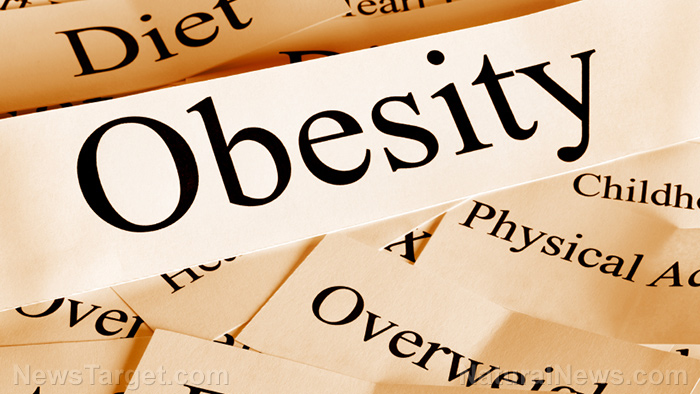Your HEART could be decades older than you are
05/05/2025 / By Ava Grace

- A study led by Dr. Pankaj Garg found that severe obesity (BMI >40) can make the heart function as if it’s 45 years older, while diabetes in middle-aged patients can add 56 years to heart age. High blood pressure also contributes to premature aging.
- The left atrium (which receives oxygen-rich blood) weakens faster in those with cardiovascular risks, increasing heart failure risk. Healthy hearts see the left ventricle improve efficiency with age, but this fails in diseased hearts.
- Current heart function measurements (like ejection fraction) don’t account for normal aging. The study suggests adjusting benchmarks to detect early warning signs using advanced MRI scans.
- Simplifying heart health into a single “heart age” number (e.g., a 50-year-old’s heart functioning like a 55-year-old’s) could shock patients into lifestyle changes before irreversible damage occurs.
- With heart disease as the world’s leading cause of death and rising obesity/diabetes rates, the study highlights the urgent need for preventive care targeting root causes like poor diet and inactivity.
A groundbreaking international study has revealed that your heart may be aging far faster than the rest of your body — especially if you struggle with obesity, diabetes or high blood pressure. Led by Dr. Pankaj Garg from the University of East Anglia, researchers found that for some individuals, particularly those with severe obesity, their hearts function as if they are 45 years older than their actual age.
Published in the European Heart Journal Open, led by UEA, the research team collaborated with hospitals in the UK, Spain and Singapore. They studied MRI scans from 557 people – 191 healthy individuals and 366 with conditions like high blood pressure diabetes, or obesity. The findings could revolutionize how doctors detect and prevent heart disease — before it’s too late.
The shocking reality of heart age
The study’s most alarming discovery was the drastic acceleration of heart aging in people with obesity. While mild obesity (BMI 30-34.9) added roughly four years to heart age, severe obesity (BMI over 40) pushed heart function 45 years beyond chronological age. Diabetes had an even more disturbing effect in middle-aged patients, with some hearts functioning 56 years older than those belonging to healthy peers. High blood pressure and atrial fibrillation also contributed to premature heart aging, though the damage plateaued around age 70. (Related: Fat isn’t fit: Study directly links obesity to heart disease.)
How the heart ages — and why It matters
The left atrium, the chamber that receives oxygen-rich blood from the lungs, showed the most significant age-related changes. In healthy individuals, this chamber gradually enlarges and weakens over time. But in those with cardiovascular risks, the deterioration happens much faster, reducing efficiency and increasing the likelihood of heart failure. Meanwhile, the left ventricle — the heart’s main pumping chamber — actually becomes more efficient with age in healthy people, a natural adaptation that fails in those with heart disease.
A wake-up call for modern medicine
Current medical standards may need an overhaul. Many measurements of heart function, such as ejection fraction (the percentage of blood pumped out with each heartbeat), do not account for normal age-related changes. The study suggests doctors should adjust these benchmarks to better detect early warning signs. Dr. Garg emphasized that this new MRI method could “spot trouble before symptoms start”, giving patients a critical head start in treatment.
A lifesaving tool — or a harsh reality check?
For patients, the concept of “heart age” is simple yet powerful: instead of drowning in complex medical jargon, they get one stark number showing how much their lifestyle is aging their heart. A 50-year-old with high blood pressure might learn their heart functions like a 55-year-old’s. The hope is that this shock factor will motivate better health choices before irreversible damage occurs.
The bigger picture: A global heart health crisis
Heart disease remains the world’s leading cause of death, and obesity rates are soaring. In the U.S. alone, 42 percent of adults are obese, while diabetes affects over 37 million Americans. This study underscores the urgent need for personalized, preventive care — not just treating symptoms but addressing root causes like poor diet and inactivity.
This research is more than a scientific breakthrough — it’s a clarion call. If your heart is aging decades faster than you are, the time to act is now. Whether through medication, diet, or exercise, the power to slow your heart’s decline lies in your hands. For doctors, this MRI technique could be the key to stopping heart disease in its tracks. For patients, it might be the wake-up call that saves their life.
Visit Health.news for more stories like this.
A new study shows that obesity impairs the immune system. Watch this video.
This video is from The HighWire with Del Bigtree channel on Brighteon.com.
More related stories:
Sugar industry promotes obesity, diabetes and heart disease.
$75 billion spent to increase incidence of diabetes, heart disease, and obesity.
What a shock: Developing Type 2 diabetes at a younger age fast-tracks you to the heart disease lane.
Artificial sweeteners linked to diabetes and obesity.
Sources included are:
Submit a correction >>
Tagged Under:
diabetes, diabetes science, discoveries, fight obesity, health science, heart aging, heart disease, heart failure, heart function, heart health, high blood pressure, hypertension, men's health, real investigations, research, women's health
This article may contain statements that reflect the opinion of the author





















